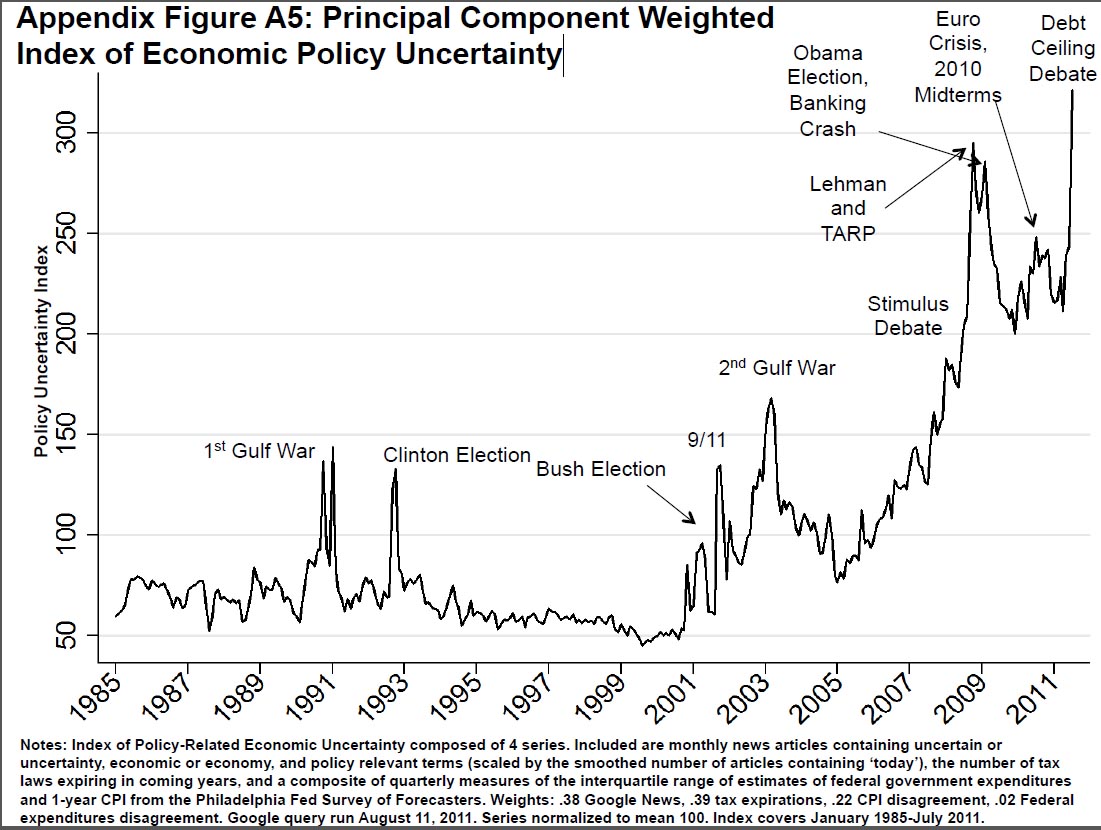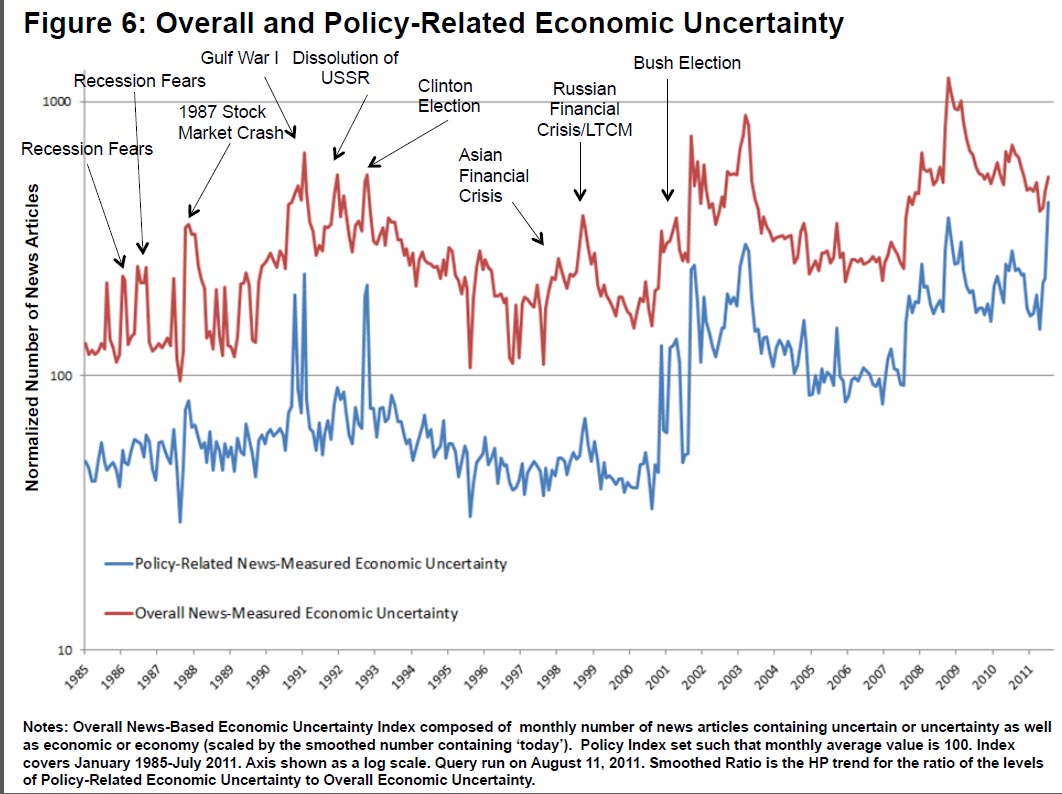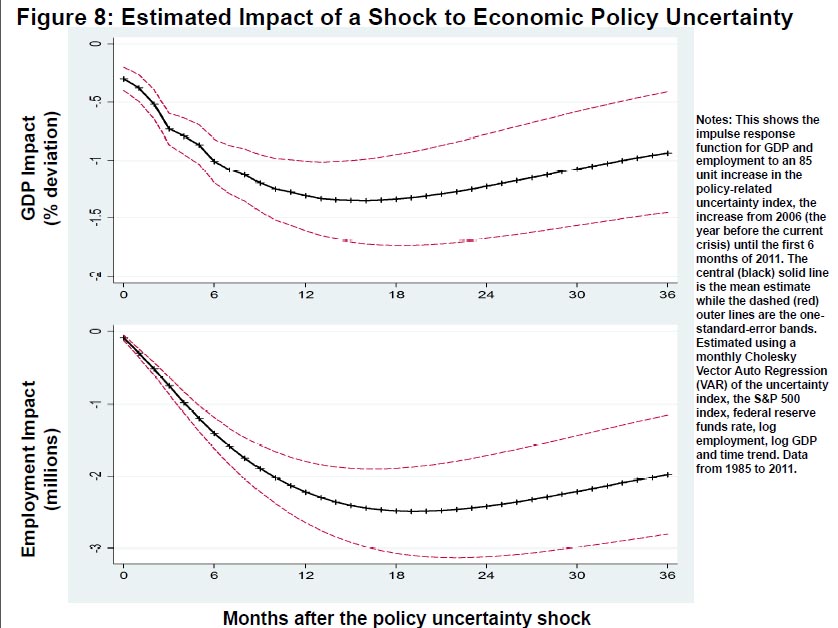Reuters has the article Romney says new Fed stimulus would risk inflation.
Republican presidential front-runner Mitt Romney on Monday said the Federal Reserve should not go ahead with another round of monetary stimulus to boost the U.S. economy, because it would risk kicking up inflation.
.
.
.
“Another round of quantitative easing is not the solution for the economy, and could mean inflation down the road,” Romney told Faux Noise. “It’s not the right thing to do.”
Of course the Fed wouldn’t have to do monetary easing if the Congress would agree to a stimulus plan that included direct government spending on all the things that Elizabeth Warren would have the government spend it on.
Be that as it may, worrying about inflation at some unknown distant point in the future while the Fed has been unable to produce enough inflation now is a silly thing to be thinking about with the current problems we have. If the fed were able to produce its target rate of inflation, it would certainly be able to take action if the inflation rate exceeded its target. Given how hard it has tried to boost inflation and how unsuccessful it has been, if it finally does manage to create some inflation, all it would have to do is stop its current efforts or perhaps reverse them, to stop inflation from getting out of hand.
Given how hard the Fed has tried to boost inflation and how little inflation we have – we actually have deflation in the housing market – can you imagine the even higher deflation in the housing market that we would have had had the Fed not intervened?
Why is some inflation in the housing market good and large deflation extremely bad? For years, people have made plans based on a fairly small, but dependable rate of inflation in the housing market. The banks have always factored this into their plans as well. The inflation is what allowed homeowners to sell a fairly illiquid asset, real estate, when they had to in order to move to where the jobs are. This inflation is also what allowed homeowners to build their equity so that they would have something on which to retire. This equity buildup due to inflation was magnified to the homeowner because of the leverage they were using with the borrowed mortgage money to finance the purchase of the real estate.
Take this all away, and even deflate the asset on which they borrowed money and you have leverage working against the homeowner. They cannot move to a better job market because they would have to raise money in order to pay off their mortgage on a home that was worth less than the mortgage on it. Not only is the falling house price not adding to their nest egg for retirement, it is actually shrinking their retirement nest egg.
Excess equity in a house is also a resource you can use if there should be unexpected disasters such as unexpected illness, sudden death of the wage earner, divorce, or loss of a job and long term unemployment. If you are underwater in your mortgage instead of having excess equity, not only is the house not a resource you can tap, it is actually an extra burden to bear.
With all these actual or imaginable problems facing the middle-class, they are desperately trying to cut their spending and trying to save money in ways that compensate for the housing problem. This is why businesses have not enough freaking customer to keep their existing employees and factories busy. Giving companies even more than the trillions of cash they are already sitting on is not going to make the middle-class become better customers.
As a matter of fact, companies taking trillions of dollars out of the economy and parking them in non-productive financial derivatives until the economy turns around is one of the many factors keeping the economy from turning around.
So taking money out of the hands of the corporations and putting it back into the economy would be a good thing to do. This means raising taxes on corporations and the wealthy individuals that control them. It makes absolutely no sense to do the opposite by lowering their taxes and allowing them to pull even more money out of the economy. This pulling money out of the economy may be the very reason that the Fed’s pouring money in is having such little effect.
That the Republicans can pretend that they don’t see these realities and then propose solutions that will make matters much worse, makes you want to apply Greenberg’s Law of Counterproductive Behavior. What are the Republican’s trying to do? The answer involves the book The Shock Doctrine. You may actually have to read more than what I have posted about the book to see the connection. The short answer is that they are trying to shock the middle-class into accepting lower wages, poorer working conditions, and cuts to government investment in the education and health of the people. With globalization, they intend to make money from customers elsewhere. Or maybe they just think they can steal the existing customers from their competitors faster than their competitors can steal customers from them. Somehow, they intend to have enough customers without having to pay living wages to workers. Can they not see that a person who is a worker in one context is a customer in another?
You have to ignore this identity of worker and customer to think that Mitt Romney’s idea of business management being blindly applied to macroeconomics would be successful.




